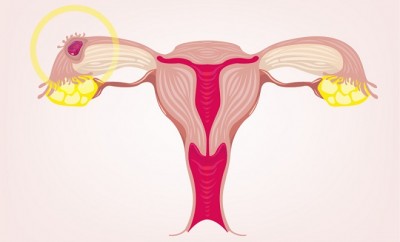All About Heavy Implantation Bleeding
A lot of women of childbearing age get worried when they experience unusual spotting right before menstruation, which is unlike their normal period discharge. Very interesting, but sometimes heavy bleeding is considered quite normal. In other cases it can be the sign of a serious threat to the future child`s health. Everything depends on the causes of this phenomenon.
Implantation Bleeding
Implantation bleeding is one of the normal pregnancy signs that occur when the fertilized egg is implanting itself into the uterine wall. It is the first identifiable symptom of pregnancy. This bleeding does not occur in all women in their early pregnancy stage and there is also a high likelihood that the woman may fail to recognize it even if it will occur.
Some women also mistake this type of spotting with the beginning of the menstrual period, which may mess up the calculation of the fetus age. In some instances, heavy implantation bleeding can also occur but should only last for a short period of time.
When Does Implantation Bleeding Occur?
Implantation bleeding usually takes place on the 10-14th day after conception and occurs before the expected menstrual period. For instance, if you have conceived on the 5th day, you are likely to experience this type of bleeding between the 17th and 29th day.
How Does Implantation Bleeding Occur?
Egg embedment spotting is a bloody discharge, which appears as a result of the actual (physical) implantation of the fertilized ovum into the uterus. The egg attaches itself to the endometrial lining from which it will extract the blood and various nutrients needed for its growth and development. If the fertilization had not occurred, the ovum would have been discharged out as the normal period flow. However, when the ovum is about to implant itself, it slowly enters the uterus and tries to embed into the endometrial lining. During this process some blood from the blood vessels can be released, which is discharged via the vagina. This spotting is called implantation bleeding. This is a normal condition and should not cause any worries. Implantation bleeding occurs much earlier than the pregnancy can be confirmed, so such spotting or period lighter than normal are actually the earliest symptoms of pregnancy.
Signs of Implantation Bleeding
Signs of implantation bleeding vary from one woman to another. Some ladies never experience this kind of bloody discharge during early stages of their pregnancies, the others face it only during the first term and carry the second child without any signs. Anyway implantation bleeding must be always mild in nature and thinner in consistency if compared with regular menstrual periods.
The Color of Implantation Bleeding
The color of implantation bleeding varies from bright red and light pink to brown. Bright red or pink bloody discharge is a likely indicator that implantation has just occurred or rather the blood is flowing from active area within the womb to the vagina very quickly.
Brown implantation bleeding indicates that this is old blood. This means that when the fertilized egg was attaching itself deep into the womb, it released a small amount of blood. This bleeding occurred during implantation and stayed in the womb for some time, thus by the moment it got discharged, it had turned brown in color.
Cramps and Implantation Bleeding
Cramps can happen both with implantation bleeding and on its own, without any bloody discharge. Such spasms are generally mild. Cramps happen when the fertilized egg buries itself deep into the womb and the womb`s muscles start to contract. These contractions cause pressure on nerve endings resulting in mild menstrual-like pains that usually last for 24-48 hours.
How Long Does Implantation Bleeding Last?
Implantation spotting typically lasts for a few minutes or a few hours. Sometimes it can stop only after 2-3 days. If implantation bleeding lasts more than three days, this is totally abnormal and may be a sign of vaginal infection and even a miscarriage.
Heavy Implantation Bleeding
In some cases women can experience heavy implantation bleeding. In general, such intense bloody discharge is not normal. In most cases it is not a good sign at all. Just as mentioned earlier, normal implantation bleeding is brown or pink in color and not in high volume, because the ovum size is not very large, it can`t destruct blood vessels so much. Thus in such cases, bleeding should not be heavy at all. As a matter of fact, the amount of blood is so small that it rarely flows out as happens during the menses. If it occurs, it is in the form of several blood drops, though not necessarily.
Some women experience heavy discharge accompanied with strong cramps during implantation. Be careful, these spasms may be a sign of an ectopic pregnancy. Moreover, heavy bleeding is likely to occur when the fertilized ovum is attached to the abdomen, ovaries, fallopian tubes, cervix, or other uterus tissues. In case of such incidences heavy bleeding is likely to be accompanied by such symptoms as dizziness, shoulder aches, pelvic pains, bloody discharge with clots, and so on.
What to Do When You Experience Heavy Implantation Bleeding
In some cases heavy implantation bleeding is considered a normal occurrence, but if heavy blood flow continues for more than three days, you are advised to seek medical attention. If you experience heavy implantation bleeding accompanied by the above mentioned symptoms, it is a must to consult a doctor immediately. You should also seek medical attention if you experience at least one of the following symptoms:
- Prolonged, heavy vaginal bleeding even after the pregnancy has already been confirmed.
- Normal or heavy menstruation after you have reached menopause.
- Prolonged heavy bleeding during your normal menstrual period.
- Vaginal bleeding or discharge accompanied by such symptoms as an extreme dizziness and acute pain.
You should not ignore your body`s signals and delay an appointment with your doctor if something looks strange and abnormal. Almost all the diseases which cause unpleasant symptoms can be more or less easy treated during early stages of pregnancy. You should keep in mind that the more you delay, the worse your situation gets and the more difficult it will be for even the best specialist in the world to correct your situation.
Recommended reading:
Can Implantation Bleeding Be Heavy? Truth Unraveled
Does Implantation Bleeding Have Clots? Truth Divulged
Can Implantation Bleeding Be Bright Red Key Facts Revealed
What Is Implantation Bleeding and When Does Implantation Bleeding Occur?
What Does Implantation Bleeding Color Tell About Your Reproductive Health?
What Does Implantation Bleeding Look Like?
Implantation Bleeding – Top 5 Signs Indicating Early Pregnancy!













